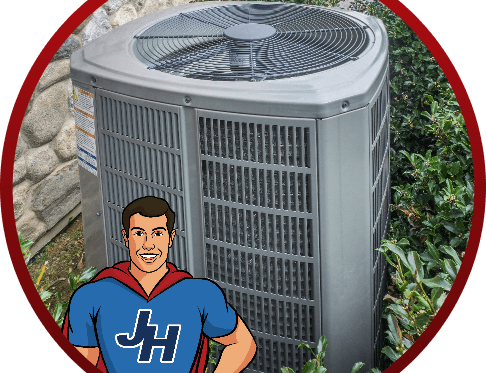Grasping the operations of both electric and gas furnaces aids in a more informed selection process. By identifying their operational intricacies, you can better align your choices with specific household needs and preferences. Each furnace type has distinct attributes that set it apart from the other, providing different benefits and challenges.
Electric Furnaces
By utilizing electrical currents, these furnaces heat metal coils, converting electrical energy into thermal energy. Fans then distribute the generated warmth throughout the living space. Due to their direct heating methodology, electric furnaces avoid the complexities of fuel combustion, making them a straightforward choice. Their design minimizes the potential for operational hiccups and ensures a smooth heating experience.
Pros of Electric Furnaces
Financial Benefits Installation
Electric furnaces offer cost advantages. Their setup doesn’t demand extensive infrastructure or special permits, reducing initial outlays. This financial edge can be particularly attractive if you are a first-time furnace owner or you are on a tighter budget. With their cost-effective installation, electric furnaces make for an enticing option if you want to strike a balance between initial investment and long-term use.
Ease of Maintenance
Routine inspections, cleanings, and part replacements for electric furnaces are generally straightforward. This maintenance ease translates to fewer service calls and potential long-term savings. Given that these furnaces lack intricate combustion systems, troubleshooting, and repairs often become less cumbersome. Consequently, you can enjoy a more hassle-free ownership experience with fewer unexpected complications.
Safety and Peace of Mind
Prioritizing household safety can make electric furnaces an appealing option. Their operation eliminates risks associated with gas combustion. Plus, families with members sensitive to noise benefit from their quieter operation, ensuring a peaceful ambiance. This two-pronged advantage of safety and serenity ensures a serene living environment that is free from potential hazards.
Longevity
Simple designs often lead to prolonged lifespans. Electric furnaces, inherently less complex, often outlive gas variants. Their durability means you can anticipate fewer replacements over the years, fostering a sense of reliability and trust in the equipment they’ve invested in.
Cons of Electric Furnaces
Operating Expenses
While electric furnaces might save on installation, they can be costlier to operate. Electricity, in many regions, costs more than natural gas. This disparity might lead you, especially in colder climates, to experience escalating monthly bills. Potential buyers must factor in these operational costs when calculating the long-term affordability of their heating solution.
Heating Pace
Despite their advantages, electric furnaces lag in heating speed. They may struggle to swiftly warm expansive spaces or counter harsh temperatures. This slow pace, particularly in larger homes or regions with severe winters, may prove inconvenient. Therefore, you should consider your heating needs and urgency before making a decision based solely on installation costs.
Gas Furnaces
These units function more intricately, relying on the combustion of natural gas. They draw in this gas, igniting it in the burner. This combustion process releases thermal energy, which warms the heat exchanger. Subsequently, blowers distribute this warmth, making spaces cozy and comfortable. Owing to their more intricate design, gas furnaces typically require a more thorough installation process but promise efficient warmth delivery.
Pros of Gas Furnaces
Heating Efficiency
When immediate warmth is the need of the hour, gas furnaces shine. Their ability to rapidly generate and distribute heat often makes them favorites in locales known for their bone-chilling winters. Their combustion-based heating mechanism ensures they deliver consistent warmth, making them reliable even during the coldest months. As a result, you may find yourself less concerned about sudden temperature drops.
Operational Savings
In many regions, natural gas is a more wallet-friendly energy source compared to electricity. This cost difference implies potential monthly savings for gas furnace users. Over the years, especially in areas with distinct seasonal shifts, these savings can become significant. As energy prices fluctuate, the consistent efficiency of gas furnaces can offer you financial predictability.
Consistency in Function
Complex they might be, but gas furnaces score high on reliability. Their combustion-based warmth generation ensures consistent heating, unaffected by external weather variations. This dependability often translates to user peace of mind, solidifying their reputation as a steadfast heating solution that delivers time and again.
Cons of Gas Furnaces
Installation Hurdles
A comprehensive setup is essential for gas furnaces. Homes without pre-existing gas lines or ventilation systems might face increased installation costs. This financial aspect, combined with the need for specialized technicians, can be daunting. However, once the setup phase is complete, the benefits of a gas furnace often overshadow the initial challenges.
Noise Levels
A tranquil home ambiance might be interrupted by gas furnaces. Their mechanical components, ignition processes, and exhaust mechanisms contribute to a noisier profile. You may need to be prepared for this auditory adjustment, but with proper placement and occasional maintenance, the noise can be managed effectively.
Routine Inspections
Safety with gas furnaces demands regular checks. The combustion process, while efficient, leaves residues and requires flawless ventilation. To prevent potential hazards like gas leaks, routine professional inspections are vital. This consistent vigilance ensures that the furnace not only functions at its best but also remains a safe addition to the home.
Environmental Footprint
While gas furnaces excel in heating, they present environmental concerns. Carbon monoxide emissions, even in small amounts, can be a concern. If you are conscious of your carbon footprint, it’s essential to weigh the efficiency against the environmental implications when choosing a furnace.
Decision Points: Gas vs. Electric Furnaces
Home Size and Insulation
A furnace’s efficiency is also influenced by a home’s size and insulation quality. Expansive or poorly insulated spaces might lean towards the swift heating capabilities of gas furnaces. Conversely, smaller, well-insulated areas might find electric furnaces more than adequate. Thus, a home’s architectural and structural characteristics play a crucial role in determining the optimal furnace type.
Local Energy Pricing
Regional energy prices can have a significant impact on long-term furnace operational costs. This factor makes it essential to compare the current and projected costs of electricity against natural gas. By keeping an eye on energy market trends, you can make more informed and future-proof decisions.
Safety Priorities
Different households prioritize safety in varying degrees. For those leaning towards maximum safety, the no-combustion advantage of electric furnaces offers a strong appeal. However, with diligent maintenance and adherence to safety guidelines, gas furnaces can also provide a secure heating solution. Ultimately, the choice rests on individual preferences and comfort levels with the associated risks.
Durability and Maintenance Needs
The longevity and maintenance demands of a furnace can significantly influence your decision. Electric furnaces, with their simpler design, often promise reduced maintenance schedules and longer operational lifetimes. Conversely, gas furnaces, while potentially demanding more frequent upkeep, offer efficient performance and can be exceptionally durable with proper care. Assessing the balance between longevity and routine maintenance, you can select a furnace type that aligns with your comfort in upkeep and long-term investment perspectives.
Contact Us Today!
At John Henry's Plumbing, Heating, Air, and Electrical in Lincoln, Nebraska, we provide heating repair, installation, and heat pumps for your home. Our friendly team also provides services for A/C, plumbing, and electrical needs in the community. Contact John Henry's Plumbing, Heating, Air, and Electrical for more information today!

